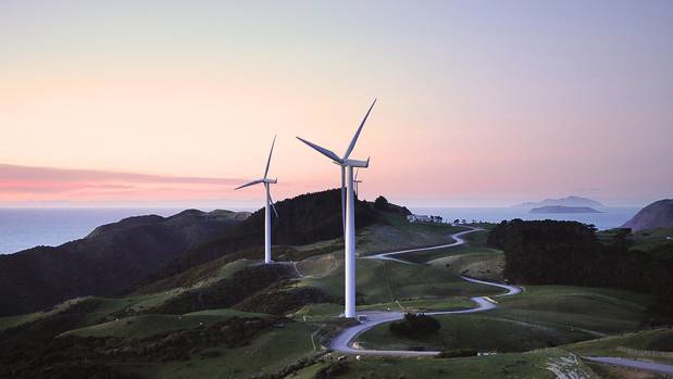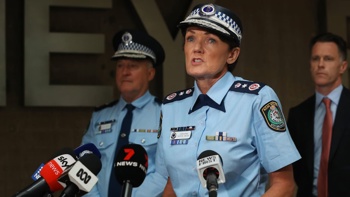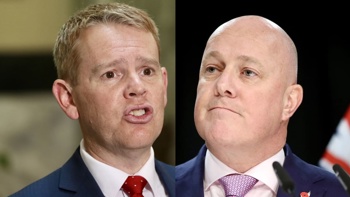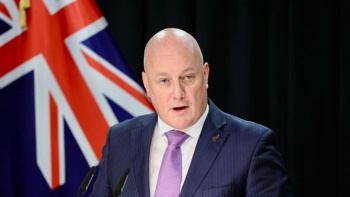
Reaching the Government's "ambitious" 100 per cent renewable energy target may increase average households' power bills by $300 a year and will a disproportionately impact low-income households.
It would also see power prices for businesses significantly increase.
This is according to the Independent Climate Change Committee's (ICCC) report into how New Zealand can reach the 100 per cent target.
The report, initially expected to be released in April, will not be publically released for at least a few weeks.
But a copy of the draft report was obtained by the Herald.
It reveals that if New Zealand achieves the target by 2035, there would be "large increases in retail electricity prices from today's levels".
The ICCC, according to the report, recommends the Government prioritises getting more electric vehicles on the road over reaching 100 per cent renewable energy by 2035.
If the target is reached, average power costs for households would increase by 14 per cent, ICCC's data shows.
That is the equivalent of roughly a $300 increase in power prices a year for most households.
"The retail price analysis showed that increased retail electricity prices will disproportionately impact low-income households, including Māori and Pasifika households," the report said.
"For example, Māori households spend more each week on electricity on average than other households (about $41.20 compared to $36.80)."
The report said Māori households also spend more, as a percentage of total expenditure, on electricity compared to other households.
"If retail electricity prices increase in the future, this would impact Māori whānau and papakāinga more than other households."
According to data from the Ministry of Business, Innovation and Employment, the average household spends $2077 a year on power.
A 14 per cent increase means households' power bills would increase by $290.
Energy Minister Megan Woods has been approached for comment.
Achieving the 100 per cent target would also be costly for businesses, according to the report.
Reaching the goal would mean commercial power prices would increase by 29 per cent. That figure jumps to 39 per cent for industrial businesses.
The sharp increases would be caused by what the report describes as "overbuilding" renewable generation, such as wind turbines and solar panels to cover dry years and substantially increasing battery storage.
At the moment, New Zealand's electricity system is about 82 per cent renewable.
But the report said New Zealand is likely to reach an average of 93 per cent renewable electricity by 2035 even without Government intervention.
Achieving the final few percentage points would be "very costly" the report said.
The ICCC outlined a number of recommendations for the Government, including prioritising electric vehicles over reaching 100 per cent renewables.
It said "ambitious targets and policies are urgently needed" to make sure people on lower and middle incomes can afford electric vehicles (EVs).
These include having fuel economy or emissions standards on imported new and second-hand cars, tax exemptions for EVs and building more EVs friendly infrastructure.
National's Energy and Resources spokesman Jonathan Young said the 100 per cent target should be abandoned.
"The ultimate effect of this is to make it tougher for businesses and industry. Our exporters will be less competitive internationally as well," he said.
"This could result in businesses closing and loss of employment; or if they do continue, then with constrained ability to expand and increase employment. Reduced bottom lines will negatively impact the Government's revenue. Essentially all the numbers going the wrong way."
Speaking to Parliament's economic development, science and innovation select committee last week, Woods said the report's public release had been delayed.
Rather, a decision had been made to release the report and the Government's response at the same time.
And she said that it was "not far off – It's certainly something that I would expect in the coming weeks and months," she told the committee.
She said the 100 per cent target was "ambitious".
The Government asked the ICCC to provide advice on planning for the transition to 100 per cent renewable electricity by 2035.
The ICCC began its work in May last year.
Having New Zealand transition to 100 per cent renewable energy was one of the key planks of the Greens 2017 election campaign.
In Labour and the Green's supply and confidence agreement, the parties agreed to: "Request the Climate Commission to plan the transition to 100 per cent renewable electricity by 2035 (which includes geothermal) in a normal hydrological year".
In December last year, ICCC chairman David Prentice warned an energy conference that it would be expensive for New Zealand to reach 100 per cent renewable energy by 2035.
Greens co-leader James Shaw was also at the conference and said the Government was not fixed on its view on the 100 per cent renewables target and will consider any advice the ICCC delivers.
Take your Radio, Podcasts and Music with you









